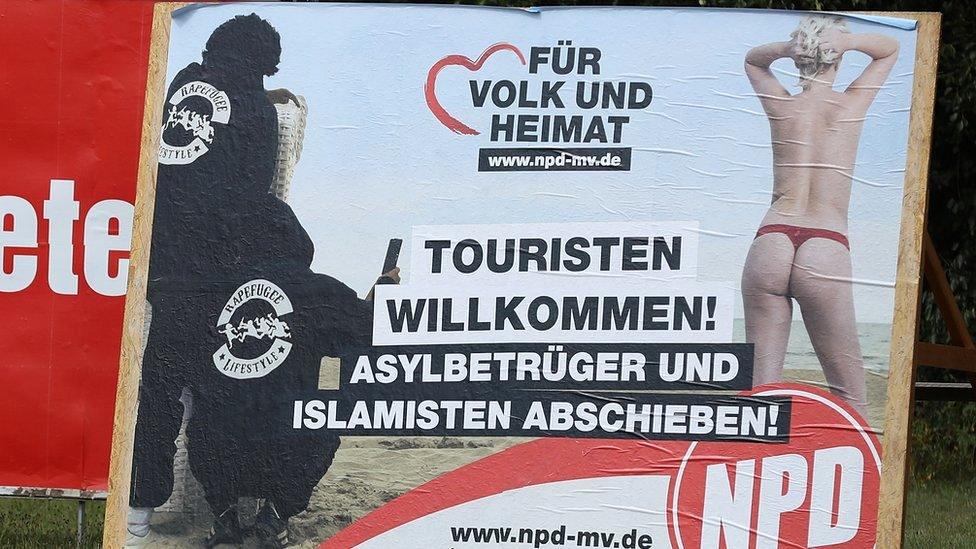How do Germans view Angela Merkel's fourth chancellor bid?
- Published
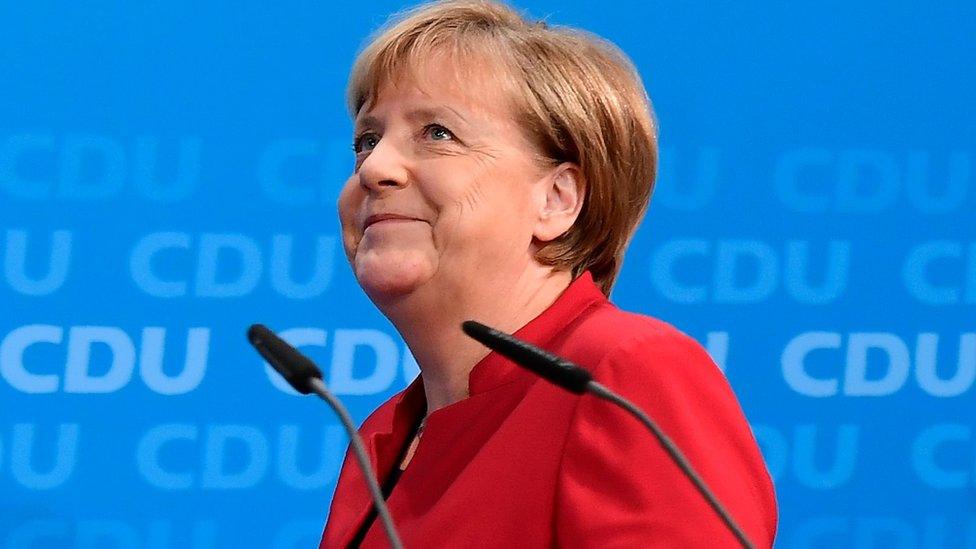
In the past, the Chancellor was referred to as 'mum'
Germans once affectionately referred to Angela Merkel as 'Mutti' - mum in German. Not any more.
On Sunday night, Mrs Merkel ended months of speculation to announce her ambition to stand for a fourth term as chancellor.
It is hard to say when the nickname disappeared from common use. Perhaps during the refugee crisis, as the domestic backlash grew against Mrs Merkel's open door asylum policy.
Angela Merkel: Germany's embattled chancellor
But its usage has certainly dwindled as the role of the German chancellor evolved from that of national leader to one of the most powerful political jobs in the world.
The next incumbent must deal with a fragmenting EU in a world which may be much changed by the new US administration.
In all probability she'll win next year's autumn election. A poll for a Sunday newspaper revealed that 55% of Germans want her to remain in the role. And her conservatives are polling at around 33%.
Is Germany's AfD racist?
But even she acknowledges this will be the toughest election campaign she's ever fought. She'll be battling the same tide of populism that swept Donald Trump to victory in the US and which is washing over many European countries too.
The anti-migrant party Alternative fuer Deutschland (AfD) has taken significant support from Germany's established parties - largely in response to the migrant crisis.
What does Alternative for Germany (AfD) want?
It inflicted a humiliating defeat on Mrs Merkel's conservatives during a recent regional election in her own constituency and it's expected to win seats for the first time in the national government.
While it's unlikely to topple the chancellor, that could complicate coalition building. And AfD's success represents profound divisions within the country.
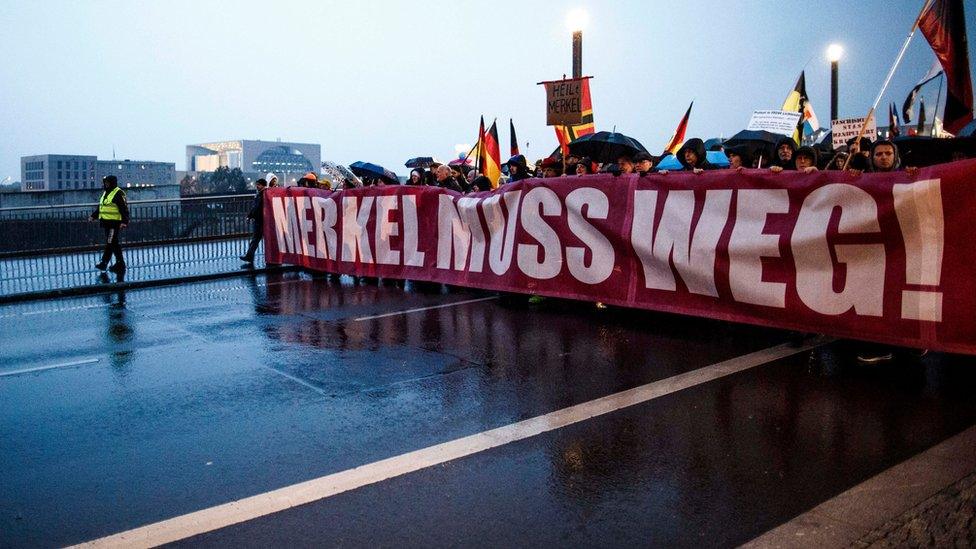
AfD far-right party members have protested "Merkel must go!"
Mrs Merkel said she'd thought "endlessly" about her decision to stand again.
It's generally accepted that Mrs Merkel, a pastor's daughter, has a strong sense of duty and a desire to finish the job. The causes of the refugee crisis remain unsolved.
The controversial migrant deal Mrs Merkel forged between the EU and Turkey - which hasn't helped her domestic popularity - is fragile. She wants to extend the same model to other north African countries. There's a sense of unfinished business.
She's also a passionate supporter of the European project and was horrified by Britain's decision to leave. Other forces threaten to further divide it. Mrs Merkel has made it clear that she wants the EU not simply to survive but to emerge stronger.
And then there's the election of Donald Trump. Mrs Merkel - who's reminded him of his obligation to freedom, democracy and the rule of law - says she has a duty to stand again in the light of struggles for "our values and our interests and… for our way of life".
'Alternativlos'
She's rubbished as "grotesque and absurd" claims that she is the West's last defender of liberal values. Yet to many of her supporters, that is what she represents.
Germans may no longer view her as a mother figure. And, undoubtedly, she has been weakened by her refugee policy. There is some frustration here at the thought of four more years of Mrs Merkel.

For many Mrs Merkel represents stability
But - overwhelmingly - there is a widespread sense of relief. Mrs Merkel's announcement represents stability in uncertain times.
And by letting the so called K-frage (the chancellor question) hang unanswered for so long, she has highlighted what even her critics grudgingly admit - there simply isn't another realistic candidate for the job.
No wonder perhaps one newspaper here printed Angela Merkel's picture this morning under the headline 'Alternativlos' (without alternative).
- Published21 November 2016
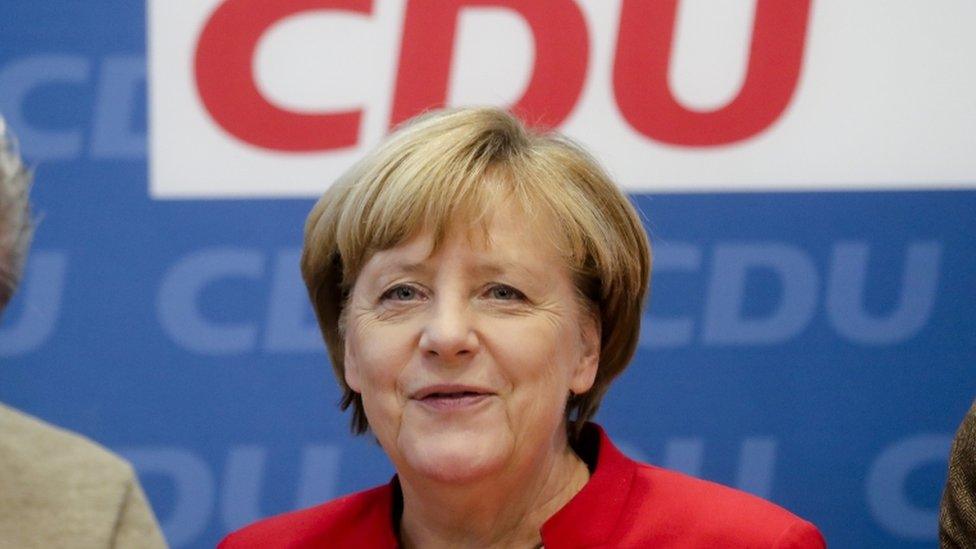
- Published19 September 2016
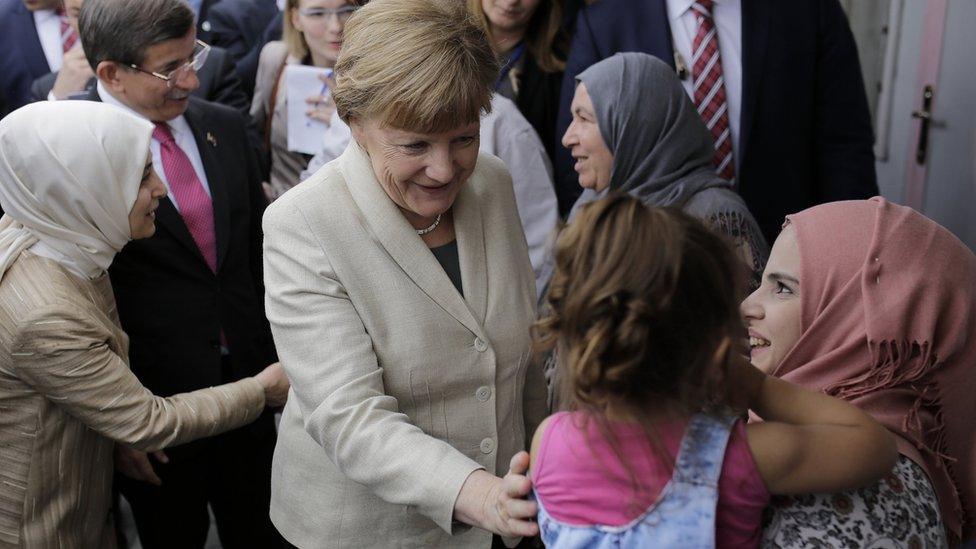
- Published7 September 2016
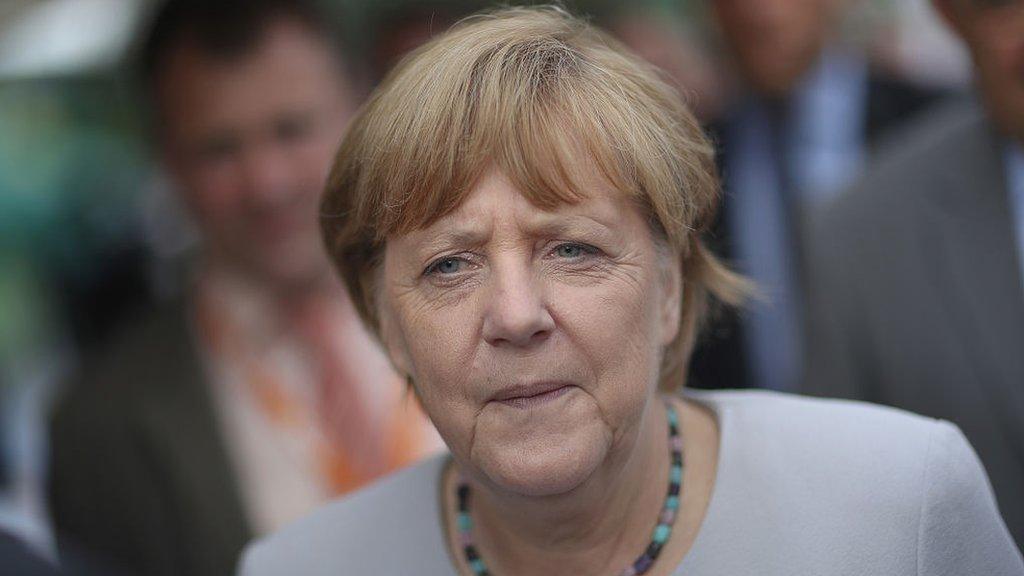
- Published3 September 2016
